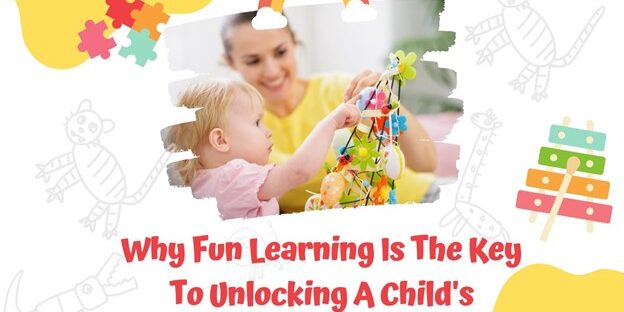Why Fun Learning Is The Key To Unlocking A Child’s Potential
Playing games and all forms of fun learning is integral to the learning process. Learning can be a highly enriching experience for children, but traditional education methods need more engagement and excitement to capture their attention.
Kids learn best through play, and research proving that is piling up to support the value of games.
Teaching children in the form of fun learning allows them to grasp concepts and understanding that would otherwise be boring.
Connecting kids to the material they’ve learned by providing rewards and motivation and associating them with games has always worked for children, so learning doesn’t have to be tedious tasks but can be something they look forward to.
In a world where we have technology, options, and innovations, where websites, like Write My Essay, make tasks easier for you and a greater level of understanding of children’s development, it’s essential to utilize our resources to give our youth the best learning experience to let them grow.
There are many ways fun learning allows your child to unlock their full potential; let’s look at some of those ways.
Improved learning retention
Traditional learning methods come with a few drawbacks, one of them being that children struggle to retain the information they just learned. Many preschool material escapes children’s minds as they grow older because it was not taught in a fun or engaging way.
On the other hand, children who learn through play are likely to remember information longer than those learning through traditional methods. This is because fun learning increases activity and engagement in the learning process, which helps create a stronger memory connection with the subject matter. This enables the child to grow and train their cognitive functioning. When you prepare a child’s mind to retain information better, you pave the way to success for their future.
Greater Engagement
Listening to your teacher explain something might be easier to process, but fun learning ensures you process everything. This is because it involves more engagement. You immerse yourself into the learning content in an enjoyable way so you can remember everything that was taught.
But when are children more likely to engage in learning? When learning through play, children will likely participate in the learning process and become invested in learning new concepts. This encourages further development and exploration within the subject matter. Children are almost always happy to get involved in activities, so you might even make learning moments memorable for them.
Enhances creativity and problem-solving abilities
Watching someone complete a task versus completing a task on your own has different effects. Children can witness their teacher solve math questions or teach English, but they won’t learn as well until they’re put in the spot themselves. The same applies to every type of learning.
To get children more engaged in a task and allow them to participate, teachers need to create an engaging environment so they can enhance their problem-solving skills. It also teaches them to be creative through experimentation by developing innovative methods to complete a task independently. This is the best way to help a child reach their potential.
Developing Social and Emotional skills
Fun learning can often involve teamwork which helps children develop essential social and emotional skills like communication and cooperation. Enhancing these skills is crucial to grow in the world because people need to learn to live in a community where individuals adequately express themselves to thrive.
Fun learning gives children the chance to engage with others in learning activities. They are also enabled to build relationships and practice social skills within a learning environment.
Moreover, games in the classroom allow students to learn how to work together as a team, build respect, take turns, listen to others, and play fairly.
Acts a Memory workout
We often think of playing brain games as a way for older folks to keep their memories in shape, but that benefit also extends to kids. Video games, in particular, help kids build up their memories, and the benefits last well into adulthood. Incorporating digital or video games in the classroom so students can learn through a more immersive method is another excellent way to keep children engaged and happy.
Fun learning allows children to train their memory and cognition abilities so their minds can function well in any other activity, whether fun learning, math problems, real-life problems, activities like puzzles, or understanding or having a better grasp of complex concepts.
Bottom Line
If you want a child to gain the most from learning, it’s crucial that you tailor your teaching methods in a way that’s enjoyable for the child. This is the most effective way for a child to absorb information and enhance their thinking ability. Fun learning allows for memory workouts, developing social and emotional skills, enhancing creativity, increasing engagement, and improving retention. Make your child’s learning sessions more immersive so they can retain their child-like self while learning big things. We hope you find this article insightful.









